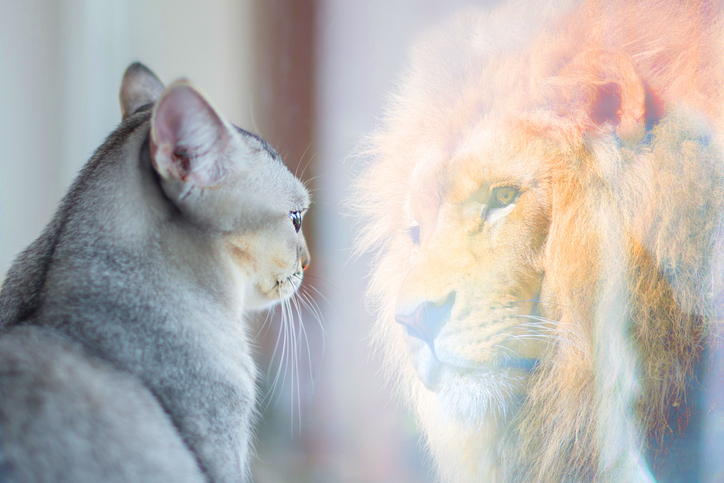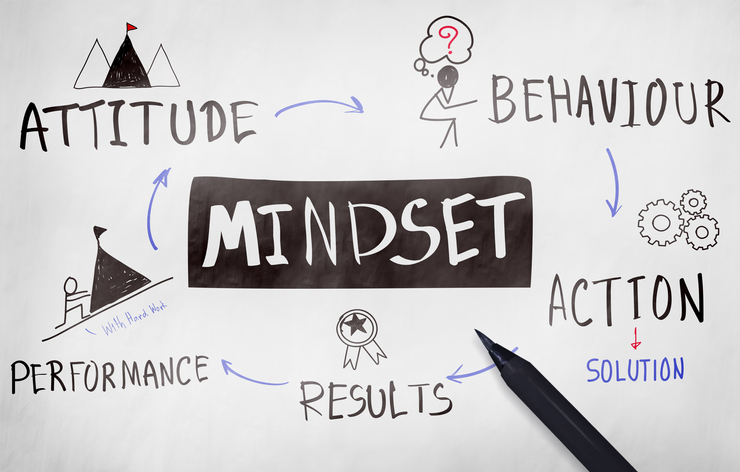How to Raise a Successful Child: Part Three

(GM) x (I) = ∞ (IP)
Growth Mindset (GM) x Imagination (I) = Infinite Possibility (IP)
In this part of the series on How to Raise a Successful Child, I’m going to talk a little bit about a learning moment I had a couple of years ago. I read an amazing book called, “Mindset: The New Psychology of Success ” by Carol Dweck, PhD. What caught my attention was that she discovered the concepts outlined in the book while researching behavior patterns in young children.
She was assessing the behaviors of children trying to solve mechanical puzzles. She noticed that some children, if they didn’t immediately succeed in solving a puzzle, would easily give up. They would say things like, “it’s too hard”, “I can’t do it”, “I don’t like puzzles” or “puzzles are stupid”. They would just decide they weren’t capable of doing it and leave it at that.
There was another group of kids however that had a different reaction. Instead of being put off by the difficulty, they found the challenge fun and interesting. When questioned after a few minutes of attempting to solve a puzzle, they said things like, “this one is tough”, “let me figure this out”, or “okay, that didn’t work, maybe if I do this”. The outcome: this group of children actually solved the puzzle, regardless of how long it took, and recognized how accomplished they felt upon completing it. Some of these kids even asked for more puzzles!
She called the behavior where a child felt his capability was limited and gave up easily, the fixed mindset. The behavior the other child exhibited, to try until the puzzle was solved, she called the growth mindset. She also suggested that adults also operate within these mindsets, that a mindset develops as the child grows. Dr. Dweck went on to say that we all operate from both mindsets but can choose which one we want to work from. The book proposed that these behaviors can be shifted from one to the other. I then thought, “how can I help my own kids with this newfound information?”
My Experience
A few months ago, I bought my son a rather complex Lego-type building set. When he first opened it, he tried it for a little bit, then got quickly frustrated, huffed and puffed and gave up. Of course, I got mad because I spent money on it, and while it may have been difficult, I knew that he was capable of building the set. But he was against it, and every attempt I made to get him to try was met with whining and frustration, then at one point he even stormed off and slammed his bedroom door (he got into a lot of trouble with me for that). I put the building set away and didn’t mention it again.
A Few Weeks Later:
My son was bored, and I suggested that he try the building set. He immediately resisted, got defensive and then angry with me, that I would even suggest that he would try to build it! “It’s too hard”, It’s poorly made” and “I can’t do it”. Sound familiar? I let the building set rest again. Fast forward to yesterday.
My son exclaimed he was bored again, and I told him to try the building set. This time he grabbed it, brought it to the living room, (I was excited!) but right after opening it, he remembered his frustration and immediately started huffing and puffing again, getting angry. And I didn’t help, because I said, “You are not even TRYING!” and he said, “YES I AM!” and stormed off to his room and slammed the door. I took a couple of deep breaths, regrouped and went upstairs.
I went into his room, sat down and said, “Do you know what my job is?”
“To be my Dad”, he said.
“And what’s the main thing I need to teach you?”, I asked.
He said, “I dunno”.
I said, “The thing I need to teach you, the thing I really want you to understand, is that you can do ANYTHING. Anything you put your mind to. You know that building set? Are you really going to let it beat you? Do you think it’s better than you? Smarter than you? Are those little plastic pieces going to get the best of you?”
“No.”, he says begrudgingly.
Then I left his room so he could think about what I said. 10 minutes later, he was back at the building set and started over at the beginning. He shifted his mindset. He was good enough, he was worthy. That set was not going to best him. And I didn’t have to yell or get angry.
What I realized was that it wasn’t so hard to help him switch from a fixed mindset to a growth mindset if I framed it correctly. In this case his view of himself was stronger than his fixed mindset. He made the shift without me exacting a punishment or berating him for him giving up. It would have been really easy to get angry with him, but my anger wasn’t going to shift his mindset, it would have pushed him deeper into his own fear.

How Imagination Supports the Growth Mindset
I think a growth mindset is driven by a powerful imagination. For example, if a child imagines they can successfully solve a puzzle, it can be a major step to actually solving the puzzle. Real success against a difficult problem, starts with imagining success. Of course, people accidentally succeed all the time, but that most often isn’t enough to reproduce success.
With a growth mindset a human can actually do anything they put their mind to. Why is that? Because the most difficult tasks are the ones that bring us the greatest reward. It’s not easy to be a doctor, or start a business, or even finish school if your home life is difficult. As we get older, our lives do not get easier, they grow more complex and the challenges become greater.
If you can help a child to live in a growth mindset, it’s a gift that will serve them well for the rest of their lives. Your child can do anything he puts his mind to, but in order to actually do it, he needs to imagine and believe that he can succeed. Akili Kids! can help with “imagination” part, but you can help reinforce the most important part: belief that they can do whatever they imagine!
